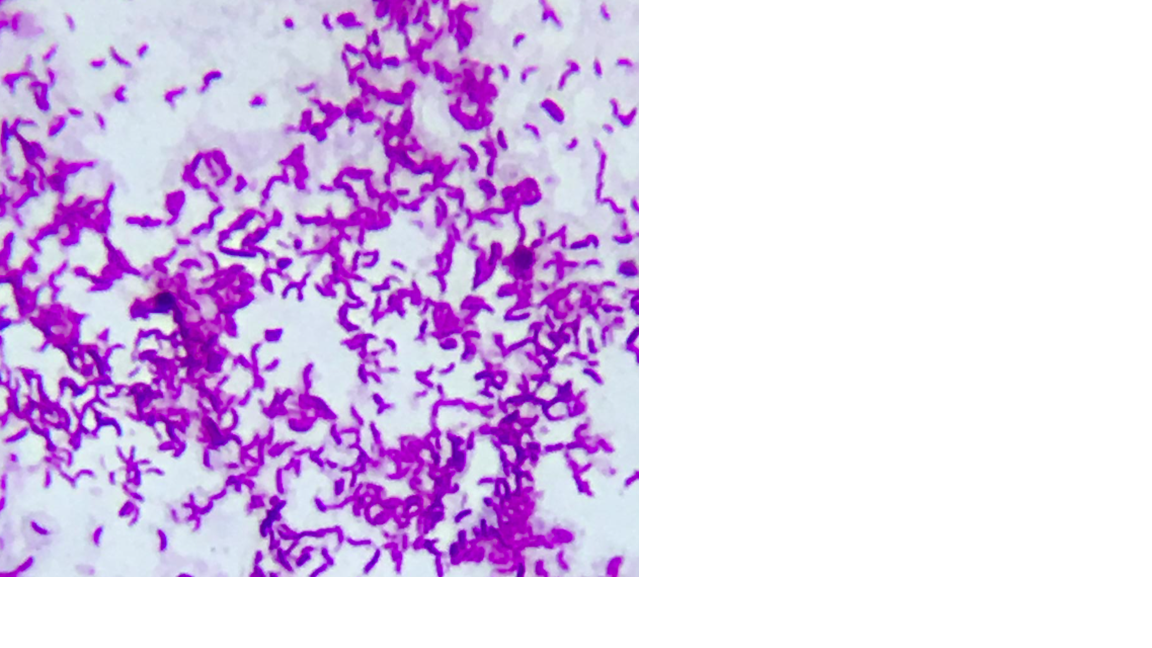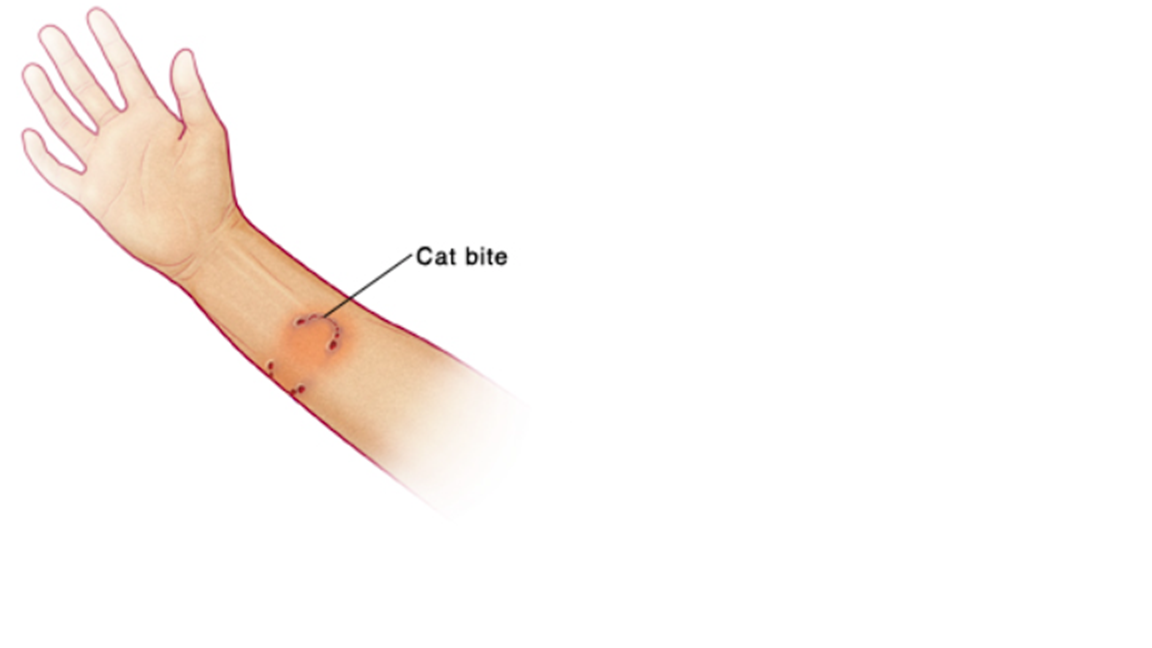Case Presentation: Pasteurella multocida is a Gram-negative coccobacillus that can cause infections following bites or scratches from domestic animals. We present a case of an older adult who was admitted for sepsis secondary to Pasteurella multocida bacteremia after numerous cat bites and scratches. A 76-year-old man with a past medical history notable for PVD, CKD Stage III, COPD, and essential HTN presented to the ED with altered mental status and numerous cat scratches. He had 61 cats living in his home and had experienced numerous bites and scratches several days prior to arrival. He reported feeling confused and lightheaded with fever and chills. His wife reported that he was “not acting his normal self.” On physical examination, he was febrile, tachypneic, tachycardic, with normal pulse oximetry on room air. His bilateral upper extremities had multiple cat scratches and bite marks. CT head without contrast was normal. Notable labs include leukocytosis of 13.9 x 10^9/L, mild hyponatremia 135 mEq/L, mild hyperkalemia 5.2 mEq/L, TSH decreased to 0.44 uIU/mL, and elevated lactic of 2.2mmol/L. Blood cultures were sent. Our patient was diagnosed with sepsis and broad-spectrum antibiotics (cefepime and vancomycin) with intravenous fluids were started. On hospital day 3, blood cultures grew Pasteurella multocida. His antibiotics were then narrowed down and tailored to IV Rocephin for a course of two weeks.
Discussion: Pasteurellosis is a zoonotic disease caused by a Gram-negative coccobacillus found in the upper respiratory tract of many animals, including in about 90% of oral flora in cats and dogs. Clinical manifestations of Pasteurella multocida can be divided into four categories – soft tissue infections, bone and joint infections, respiratory infections, and other invasive infections. Soft tissue infections and bone infections occur following a penetrating bite or scratch. Respiratory infections occur after inhaling contaminated aerosols of pets which colonize the tracheobronchial tree and can progress into pneumonia. Other invasive infections can occur such as bacteremia, as in our patient. The prognosis for Pasteurella infections depends on the type and severity of infection. Pasteurella multocida bacteremia has a mortality rate of 30%. Many patients with Pasteurella multocida bacteremia have predisposing comorbidities, which likely increased our patient’s risk. For monomicrobial Pasteurella bacteremic infections, ampicillin-sulbactam or third generation cephalosporins are the drugs of choice.
Conclusions: Pasteurella multocida bacteremia is a potentially life-threatening infection associated with domestic animal contact. Severe infections can occur in previously healthy individuals because of cat scratches, bites, or licks. Most infections are mild soft tissue infections, though it may progress to bacteremia and sepsis, especially in those with comorbid conditions such as COPD. Management of Pasteurella multocida bacteremia includes antimicrobial therapy, most frequently with ampicillin-sulbactam or third generation cephalosporins.


